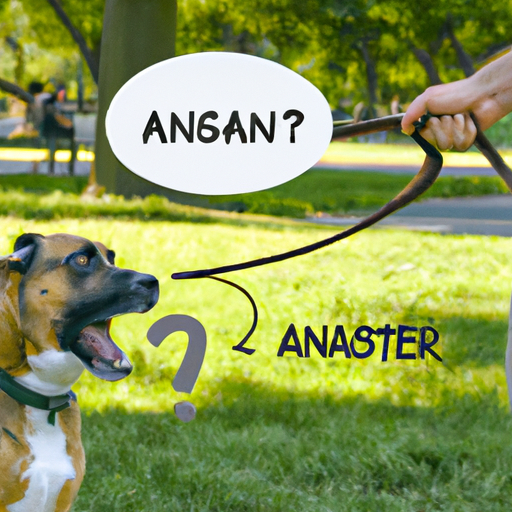Understanding Your Dog’s Aggression
You might have observed a drastic change in your dog’s behavior. Out of nowhere, your normally calm and friendly pet is suddenly showing aggression towards other dogs. This behavior can be alarming and confusing. But don’t worry, you’re not alone in this. Many dog owners face this issue at some point. Here are a few reasons why your dog could be acting this way:
- Fear: Dogs are like humans in many ways. When they feel threatened or scared, their natural instinct is to protect themselves. This could be a reason why your dog is acting out.
- Lack of Socialization: If your dog hasn’t been properly socialized, it might not know how to behave around other dogs. This could lead to aggressive behavior.
- Health Issues: If your dog is in pain or discomfort, it might lash out at other dogs. It’s a way of telling others to keep their distance.
What Causes Sudden Aggression In Dogs
The sudden onset of aggressive behavior can be indicative of various underlying issues. Here’s a table highlighting some potential causes:
| Underlying Cause | Explanation |
|---|---|
| Health Problems | Dogs often turn aggressive when they’re in pain or discomfort. This could be due to an injury, illness, or even old age. |
| Fear or Anxiety | Dogs might lash out if they feel threatened or anxious. This could be due to a new environment, unfamiliar people or animals, or past trauma. |
| Resource Guarding | Dogs might become aggressive if they feel their resources (food, toys, space) are being threatened. |
| Lack of Socialization | If dogs aren’t properly socialized at a young age, they might not know how to interact with other dogs, leading to aggression. |
How To Handle Your Dog’s Aggression
Handling your dog’s sudden aggression can be a challenge. Here are some tips to help you manage this situation:
- Seek Professional Help: If your dog’s aggressive behavior is getting out of hand, don’t hesitate to seek help from a professional dog trainer or a veterinary behaviorist.
- Regular Vet Check-ups: Regular vet check-ups can help detect any health issues that might be causing the aggression.
- Proper Socialization: Make sure your dog is properly socialized with other dogs, people, and environments. This helps in reducing fear-based aggression.
Preventing Future Aggression In Your Dog
Preventing future aggression in your dog is crucial for their well-being and the safety of others. Here are some preventive measures you can take:
- Training: Train your dog to obey basic commands like ‘sit’, ‘stay’, ‘leave it’. This can help control their behavior in different situations.
- Positive Reinforcement: Reward your dog for good behavior. This will encourage them to behave well.
- Avoid Triggers: If certain situations trigger your dog’s aggression, try to avoid or minimize them as much as possible.
FAQ
Q1: Can diet affect my dog’s behavior?
Yes, diet can influence a dog’s behavior. A balanced diet is essential for their overall health and well-being.
Q2: Are certain breeds more prone to aggression?
While some breeds have a reputation for being more aggressive, it’s important to remember that behavior can vary greatly within a breed.
Q3: Can neutering or spaying help with aggression?
In some cases, neutering or spaying can help reduce aggression, especially if the aggression is linked to hormonal changes.
Remember, understanding and addressing your dog’s aggression is the key to helping them. Patience, love, and professional guidance can go a long way in managing and preventing aggressive behavior in dogs.



